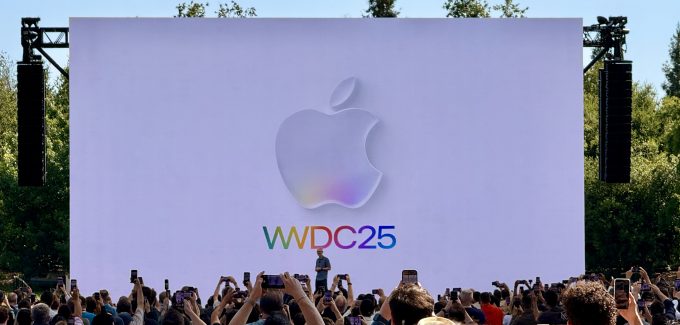Speed is a drug in tech. Everyone wants faster chips, faster models, faster results. But there comes a point when "fast" doesn't cut it-when you're not just running out of processing cycles, but out of options entirely. That's where the idea of quantum advantage enters the room. Not as a buzzword. As a necessity.
At the centre of this evolution is Quantum AI-not a gimmick, not a branding stunt, but the hard-fought intersection of probabilistic physics and machine learning trying to claw its way out of the lab and into reality.
This isn't about beating classical computers in a sprint. It's about going places they physically can't.
1. Quantum Advantage: What It Is, and What It Definitely Isn't
Let's set the record straight. Quantum advantage doesn't mean "faster everything." It means solving specific problems that classical systems either can't handle, or would need centuries to chew through. Think of it as picking locks that silicon just keeps snapping its keys in.
We're talking optimisation problems with exponential complexity. Quantum chemistry simulations. Machine learning tasks with labyrinthine data geometries. These are where quantum systems might pull ahead-not in photo filters or chatbot replies.
So far, demonstrations of quantum advantage are scarce. Google made headlines in 2019 when it claimed supremacy over classical machines on a contrived sampling problem-useful for bragging rights, not so much for practical applications.
The truth? Most current quantum models are stuck in "NISQ" territory-Noisy Intermediate-Scale Quantum. That means lots of errors, limited qubit counts, and systems barely able to outperform a calculator with a hangover.
Still, in narrow, high-complexity domains, the theoretical promise of advantage is very real. And that's the playing field for Quantum AI.
2. The Role of Quantum Advantage in AI Workflows
Artificial intelligence isn't just about training models. It's a pipeline: data preparation, optimisation, pattern recognition, inference. Quantum advantage doesn't need to take over the whole process-it just needs to give us leverage at key points.
One of those points? Feature space exploration. Quantum-enhanced kernels allow models to project data into complex dimensions where relationships become easier to spot. This isn't just theory-papers like "Supervised learning with quantum-enhanced feature spaces" show empirical improvements, albeit in small, controlled datasets.
Another area is combinatorial optimisation-finding the best answer from millions of bad ones. Whether it's scheduling flights or laying out circuits, these are problems AI often fumbles through with brute force. Quantum systems, particularly those using variational algorithms, may explore these solution spaces more intelligently.
None of this means Quantum AI is "better" than classical AI across the board. It just means that, in certain high-complexity, low-symmetry cases, it has a shot at cutting through the fog.
3. Quantum AI in Trading: Where Advantage Means Everything
If there's one industry that understands the value of milliseconds-and will gladly fund whatever might give them more-it's finance. Which explains why Quantum AI is starting to show up in trading floors and hedge fund strategies, right alongside the espresso machine and market panic.
The edge in quantum trading isn't just about speed-it's about dimensional complexity. Traditional models struggle with portfolios involving hundreds of assets and conflicting constraints. Quantum models, theoretically, can handle this better-navigating huge optimisation landscapes using quantum annealing or hybrid quantum-classical solvers.
Early use cases include:
- Quantum-enhanced Monte Carlo methods for pricing derivatives
- Portfolio rebalancing algorithms that account for market correlations and risk scenarios
- Sentiment analysis models with quantum natural language processing (still very early)
The actual advantage? Still contested. Most trading systems using quantum components rely heavily on simulators. The results are mixed. But the appetite is real, and so is the funding.
As with everything in Quantum AI, the promise isn't revolution today. It's the possibility of edge tomorrow. And in markets, that's usually enough.
4. How Close Are We to Real Quantum Advantage in AI?
Closer than five years ago. Still far from mass deployment. That's the brutally honest answer.
Progress is uneven. Some algorithms-like Quantum Support Vector Machines-show promise in specific cases. But running these at scale requires fault-tolerant hardware, and we're not there yet. Current systems max out quickly. Add qubits, and error rates spike like bad coffee after midnight.
Efforts like Qiskit Machine Learning, PennyLane, and Cirq are building the software bridges. But most of what's happening is still research-more GitHub than Goldman Sachs.
That said, private companies and governments are investing heavily in quantum advantage applications for AI. The EU's Quantum Flagship, the U.S. National Quantum Initiative, and corporate labs at IBM, Google, and Baidu are all quietly pushing this forward.
It's not about when we'll see general quantum advantage. It's about where we'll see local ones first.
5. What Happens After Advantage? The Real Questions Begin
Let's say we get it. A real, undeniable, no-simulation-needed quantum advantage in a useful AI task. What then?
Well, for starters-everything breaks.
Security models need reevaluating. Cloud infrastructure has to support quantum-classical pipelines. Regulatory frameworks will stumble. And the AI world will have to wrestle with a new kind of complexity: models that can't be easily explained, or even simulated, on classical machines.
There's also the human factor. Explain to a CIO why their AI just produced a 20% performance spike using a system they can't audit. Quantum models aren't just complex-they're opaque. You thought deep learning was a black box? Welcome to the black hole.
Still, this is where the work gets interesting. After advantage, we'll be forced to rethink how we build, train, and trust intelligent systems. And maybe that's the point. Not faster. Just... different.
FAQ: Quantum Advantage in AI
What is quantum advantage, really?
It's when a quantum system performs a computational task more efficiently than any known classical method. Not faster on everything-just better on certain things.
Has it been achieved in AI yet?
Not definitively. Some small cases show promise, but large-scale, practical quantum advantage in AI is still pending.
Where might we see it first?
In optimisation, quantum chemistry, and parts of machine learning involving complex pattern discovery or high-dimensional data.
What about trading? Is that real or just noise?
There are real experiments happening. Results are mixed, but interest is high. Some hybrid systems are already in pilot mode.
Should I build for quantum advantage now?
If you're in research or deep-tech startups, yes. If you're just looking to automate customer service, probably not yet.















